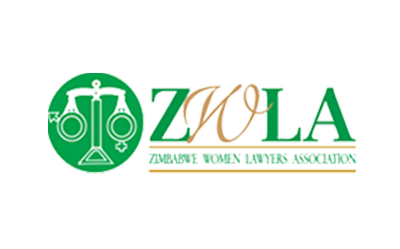
The grass is certainly not greener on the other side. Trafficking has been on the increase as more people hope to find job prospects outside of the country. Under pre-tense of promises of better jobs mainly women and children are trafficked for the sole purpose of exploitation. Often victims are forced into providing cheap labour or slavery, sexual exploitation, forced into prostitution, forced into marriages, forced into child marriages or have their organs removed. Although statistically more women and children are trafficked, trafficking can include men and boys. Often, trafficking is thought to be trafficking across borders but trafficking can be within a country’s border.
There is a perception that a victim of trafficking cannot consent to being trafficked. However, a victim can be trafficked through coercion or deception and a victim can be trafficked even they derive some benefit from their movement. Furthermore, trafficking does not discriminate against those who are educated as they too can be trafficked through deceptive means.
The causes of trafficking are varied but the common thread is the conditions of vulnerability on the part of victims and opportunities on the part of traffickers. The conditions that enhance the vulnerability of people include poverty or financial need due to lack of employment, ignorance about work and movement or migration realities and limited knowledge about trafficking.
What is trafficking?
Article 3(a) of the UN Protocol to Prevent, Suppress and Punish Trafficking in persons Especially Women and Children, Supplementing the UN Convention Against Organised Crime, of Palermo, which Zimbabwe signed informs us of what trafficking is. It describes trafficking in persons as recruitment, transportation, transfer, harbouring or receipt of persons by methods of threat of force or use of force or coercion for the purpose of exploitation. Trafficking is not new; rather it is a term that describes action of forcibly taking a person and transporting them to another place so that the person is used as form of cheap labour or to exploit them. This happened in biblical times when Joseph was sold off by his brothers and it also happened during the 14th century and it was termed slavery. The term has changed over the years to describe this exploitation. What has changed is the disguise in which it comes in. More recently, trafficking syndicates take advantage of those searching for employment. The traffickers attract desperate job seekers with promises of job prospects and in some cases offering to pay for the travel costs and visa requirements.
Once the victim is in another country, the traffickers confiscate the victim’s travel documents and threaten the victims or the relatives of the victim back at home. The victim is left with little option but to remain with their captors under harsh and deplorable conditions. The trafficked victim can also be sold to multiple owners over and over. The victim of trafficking who would have relied on their traffickers to pay of all costs would be forced into debt bondage where the victims are forced to repay their travel cost which sees them being forced to work for little or no pay.
Trafficking Legislation
Trafficking violates a host of rights and freedoms enshrined in the Constitution such as the right to human dignity, personal security and freedom from torture or cruel inhuman treatment and slavery amongst other rights. Zimbabwean law goes further to criminalise the act of trafficking through mainly the Trafficking in Persons Act Chapter 9:25 enacted 2014. There are statues such as the Criminal Law (Codification and Reform) Act Chapter 9:23, Immigration Act Chapter 4:02 and the Labour Act Chapter 28:01 which make acts performed during trafficking unlawful. The Trafficking in Person Act specifically criminalises the act of trafficking and sets out the penal sentences of life imprisonment or a period of not less than ten years. The Trafficking in Persons Act states that any person who transports any person within or outside Zimbabwe voluntarily or involuntarily by means of force, threats or abduction shall be guilty of a crime of trafficking in persons.
The Act mentions acts which make up trafficking as recruiting, transferring or receiving a person for the purpose of exploiting them by forcing them into prostitution or to be exploited as cheap labour. The law makes it a crime to attempt, assist, connive or conspire with others to commit the crime of trafficking. Therefore taking part in the planning of an act that constitutes trafficking is a criminal offence. The Act attempts to have a dragnet to cover all who might take part in trafficking in that those who advertise or assist in the advertising, printing, publication or distribution of material that promote trafficking shall be guilty of the crime of trafficking. The Act also captures those who for purpose trafficking assists any other person to obtain false identity or travel documents will be guilty of trafficking.
Although the Government has done it is best to criminalise trafficking through the trafficking law that criminalise trafficking and compounded its efforts with the launch of the Trafficking in Persons National Plan, members of the public need to be vigilant to acts of trafficking. Those seeking employment within or outside our borders should exercise extreme caution as trafficking syndicates are on the prowl.
By: Tinsahe Chitunhu

 Contact us for
Contact us for 